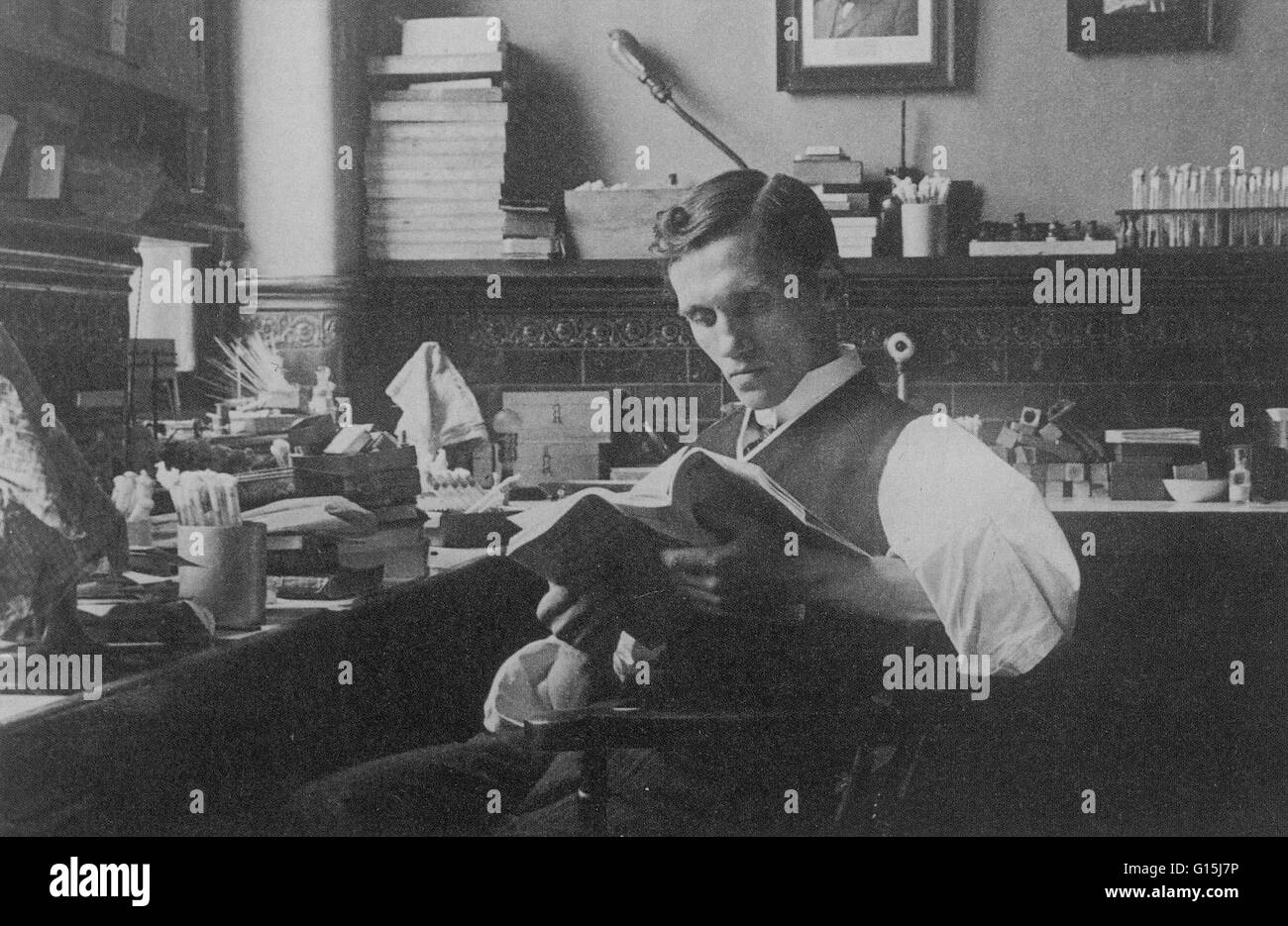Alexander Fleming (1881-1955) was a Scottish biologist and pharmacologist. He wrote many articles on bacteriology, immunology, and chemotherapy. His best-known discoveries are the discovery of the enzyme lysozyme in 1923 and the antibiotic substance penic

Image details
Contributor:
Science History Images / Alamy Stock PhotoImage ID:
G15J7PFile size:
28.6 MB (4.1 MB Compressed download)Releases:
Model - no | Property - noDo I need a release?Dimensions:
3923 x 2550 px | 33.2 x 21.6 cm | 13.1 x 8.5 inches | 300dpiPhotographer:
Photo ResearchersMore information:
This image could have imperfections as it’s either historical or reportage.
Alexander Fleming (1881-1955) was a Scottish biologist and pharmacologist. He wrote many articles on bacteriology, immunology, and chemotherapy. His best-known discoveries are the discovery of the enzyme lysozyme in 1923 and the antibiotic substance penicillin from the mold Penicillium notatum in 1928, for which he shared the Nobel Prize in Physiology or Medicine in 1945 with Howard Florey and Ernst Boris Chain. Fleming's accidental discovery and isolation of penicillin marked the start of modern antibiotics. He also discovered that bacteria developed antibiotic resistance whenever too little penicillin was used or when it was used for too short a period. Almroth Wright had predicted antibiotic resistance even before it was noticed during experiments. Fleming cautioned about the use of penicillin in his many speeches around the world.In 1999, Time magazine named Fleming one of the 100 Most Important People of the 20th Century. He died in 1955 from a heart attack at the age of 73.